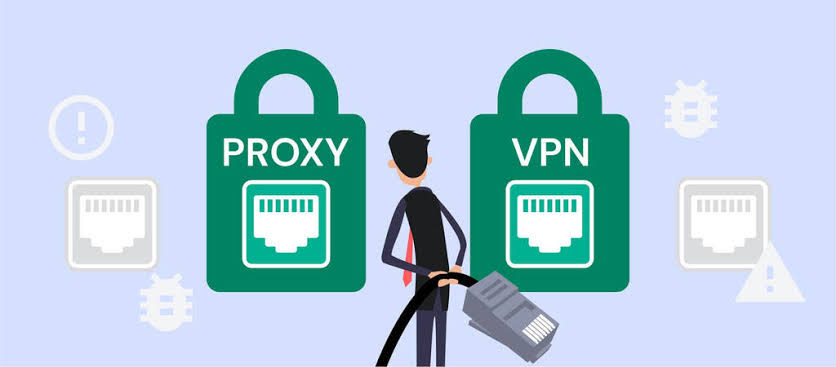Are you worried about your privacy while using the Internet? Do you ever wonder if hackers, government agencies, or corporations can monitor the websites you visit, the files you download, or the links you click? VPN for Windows is a method of encrypting, authenticating, and protecting data. So that we can use a public network as a private network without any hassle. Free VPN is capable of creating the illusion of a private connection over a public connection. In addition, the best free VPN for Windows 10 allows users to connect to a private network from anywhere. The proxy server uses the anonymous network ID instead of the client’s actual IP address. By doing this client’s actual IP address cannot be revealed.
In this article, we are going to discuss the 6 differences between a proxy and a VPN by comparing the important factors. This will allow you to determine which is suitable for you as per your needs.
Top 6 Differences Between a Proxy and a VPN:
1. Security:
If we talk about encryption, authentication, and integrity protection all are provided by both VPN and proxy. But in the case of a proxy there is no guarantee about the level of security. Your internet browsing, and any sensitive data that you send or receive, will be safe if you use a VPN.
By using VPN no one, even hackers, government organizations, or others, will be able to see your information. In addition, while you are using a VPN for Windows to access your online bank account. Hackers will not be able to access any kind of account detail because your information is encrypted.
2. Protocol:
In terms of protocols, PTTP (Point to point tunneling protocol), L2TP (Layer 2 tunneling protocol), is used in VPN. But FTP (File Transfer Protocol), SMTP (Simple Mail Transfer Protocol), HTTP (HyperText Transfer Protocol), are used in Proxy.
3. Firewalls:
VPN is compatible with firewalls on the other side Browsers can use proxies. Companies have no information to give to anyone else that you browse. A free vpn may save the record of complete traffic and sell your sensitive data to third parties.
4. Privacy:
Providers of virtual private networks help to encourage internet privacy. If you want to get complete privacy, use the best free VPN for Windows service with a no-log policy. In the “no log” policy providers promise that they will not track your online browsing data.
5. Use of IP Address:
In the case of VPN, it does not mask the client’s IP address. In the case of a proxy, the client’s actual IP address is used as an anonymous network ID.
6. Speed:
Connections through free proxy servers may be slower as compared to free VPN services. If more people are using the services then the limit of both proxy and VPNs can slow down your browsing. Due to a lack of support, configuration, and infrastructure, free proxy connections can be slower and less secure.
Final Words
The best free VPN for Windows service can provide more secure data encryption. Both a free VPN and a proxy reroute your traffic through a remote server and mask your original IP address. If we compare in many ways, though, a vpn for windows is superior to a proxy server. If you value your privacy and security, you should use a VPN.
Thanks for reading!
Share this article with your dear ones who want the difference between a proxy and a VPN


